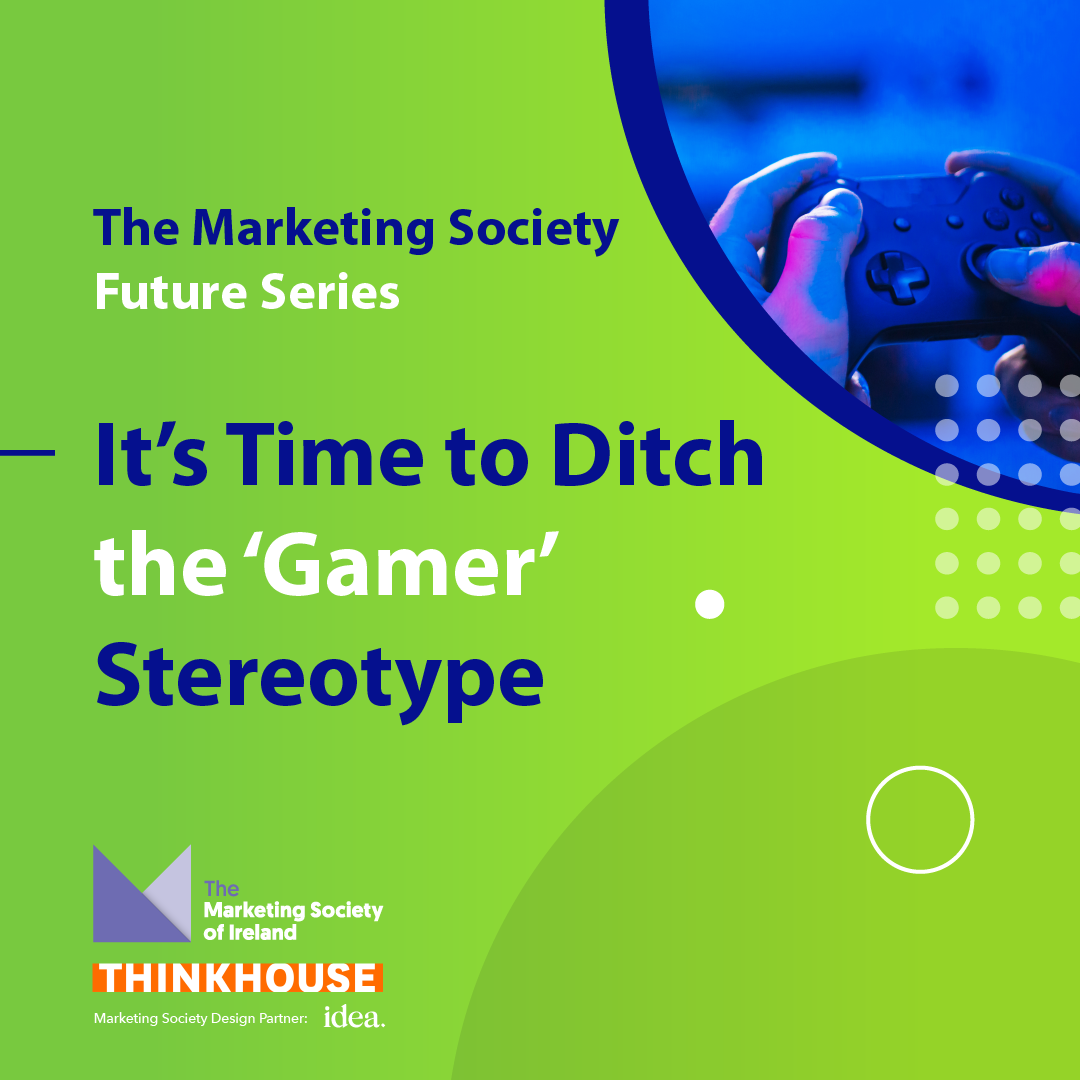What every Marketer needs to know to get in on Gaming.
How brands, gamers and thought leaders can navigate their way in to building deeper connections leveraging dynamic evolving platforms.It's Time to Ditch the "Gamer" Stereotype

Earlier this year, the Marketing Society of Ireland held an event discussing the hottest topic in marketing at the moment – Gaming. ‘What Every Marketer Needs to know to get in on Gaming’ brought together experts in the industry and a stellar panel of speakers, including Ben Finnegan from Epic Global, Lucozade’s Aoife McGuigan, Conor Barron from An Post and Twitch star Gee Nelly. The result was a truly interesting and engaging discussion on the opportunities that exist for brands today in the gaming industry.
Reflecting on the event, a key takeaway was that despite some clear brand opportunities via the influencer community, advertising and sponsorships, it appears to be an industry that many brands tend to undervalue the potential of. Often however, this is not down to a conscious decision to avoid the gaming industry, but because they don’t consider it as an option in the first place.
I feel that there are two main reasons for this. Firstly, due to a lack of knowledge of what is happening in the gaming industry, brands struggle to envisage what role they can play. Trends in the industry move at a fast pace, and in order to identify and capitalise on them in a relevant way, brands need to be active within gaming communities. Secondly, it is because many marketers have an inaccurate and narrow representation of who exactly today’s ‘gamer’ is – meaning that the potential reach and value of getting in on gaming is often underestimated.
The Democratisation of Gaming
When you think of a ‘gamer’ what do you think of?
Like many others, your perception of a gamer is likely anchored in unwarranted stereotypes - you might think of someone, probably male, who spends too much time indoors. However, the reality of today’s ‘gamer’ is very different from this narrow persona that many people have anchored in their minds.
Gaming is not ringfenced to a niche group and it is increasingly becoming part of the lives of wider society. The number of people worldwide who game continues to grow, and by 2025 there is projected to be 3.5 billion gamers globally. This growth has been expedited by the pandemic which led to record-level engagement and time spent gaming. It also caused many lapsed players to dust off the cob webs on their old gaming devices.
In addition, a significant catalyst of the growth of gaming has been the continued success of mobile gaming – the fastest growing area of gaming globally. If you take the Luas, bus or other public transport nowadays, you will see first-hand how mobile gaming has seeped into the daily lives of people. For many, it has become the antidote to idle time when travelling. Popular games include Pokémon Go, Minecraft, online MMOs such as Genshin Impact, and even being able to port classic games that people love so they can play it on-the-go.
There has also been evolutions in game development that have made gaming more accessible and inclusive. Instead of game developers focusing their attention on the needs of more ‘hardcore’ gamers, they are increasingly making games that appeal to a wider diversity of gamer profiles. For example, for ‘casual’ gamers who prefer quick bursts of play instead of a lengthy gaming session.
These evolutions in technology and game development have led to a democratisation of gaming. In other words, the ‘gamer’ is becoming increasingly diverse. There has been a surge in the number of female gamers globally over the last decade and there is also the proliferation of sites catering for marginalised groups such as caniplaythat.com, which provides accessibility reviews for gamers who have a disability.
The Brand Opportunity in Ireland
The continued growth of gaming presents significant opportunities for brands today – particularly in connecting with Gen Z and Millennials. For example, the Behaviour & Attitudes Techscape 2022 report (https://banda.ie/ba-techscape-2022/) which researches the technology behaviour of Irish consumers annually found that there are nearly as many Gen Z who play games online with others (41%) as there is who watch or stream live sports or other events online (44%) nowadays. In addition, nearly 2 in 3 of Gen Z watch an online streaming service such as Twitch, or YouTube Gaming nowadays, with over a third of Millennials doing the same. Gaming is not niche, it is mainstream and has significant cultural relevance and represents a significant opportunity for brands who are willing to dig deeper to understand where they can play a meaningful role.
It’s clear that marketers need to ditch the stereotype of the typical ‘gamer’ that they have in their minds and look at it as it really is - an untapped brand opportunity and conduit for connecting with consumers through a highly engaging platform.
Niall Brennan, Behaviour & Attitudes



